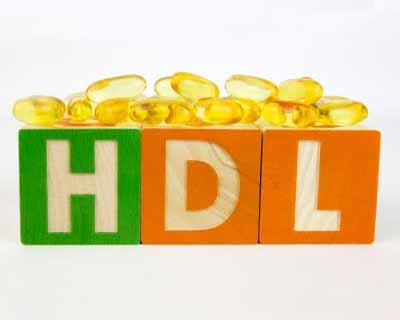- Home
- Editorial
- News
- Practice Guidelines
- Anesthesiology Guidelines
- Cancer Guidelines
- Cardiac Sciences Guidelines
- Critical Care Guidelines
- Dentistry Guidelines
- Dermatology Guidelines
- Diabetes and Endo Guidelines
- Diagnostics Guidelines
- ENT Guidelines
- Featured Practice Guidelines
- Gastroenterology Guidelines
- Geriatrics Guidelines
- Medicine Guidelines
- Nephrology Guidelines
- Neurosciences Guidelines
- Obs and Gynae Guidelines
- Ophthalmology Guidelines
- Orthopaedics Guidelines
- Paediatrics Guidelines
- Psychiatry Guidelines
- Pulmonology Guidelines
- Radiology Guidelines
- Surgery Guidelines
- Urology Guidelines
HDL protection dependent on two other blood lipids: Study

Baltimore : For years, physicians have told patients that HDL (high-density lipoprotein cholesterol) helps protect them from cardiovascular disease (CVD). And the higher the number, the more the protection. HDL, often considered an independent predictor of heart disease, has been dubbed the "good" cholesterol, thanks to its protective effects. But a new study shows for the first time that HDL's protection depends on the levels of two other blood fats or lipids associated with heart disease. If these fats are not within normal ranges, even a high HDL may not be protective.
The new research analyzes nearly 25 years of data from the Framingham Heart Study's Offspring Cohort. It focuses on the roles HDL, LDL (low-density lipoprotein cholesterol) and triglycerides (TG) play in increasing or decreasing the risk of heart disease. The study, published online in Circulation: Cardiovascular Quality and Outcomes, followed 3,590 men and women without known cardiovascular disease between 1987 and 2011.
"There's no question that HDL does have a protective role, as we also confirm in the study, but HDL has been hyped-up," says senior author Michael Miller, MD, professor of cardiovascular medicine at the University of Maryland School of Medicine and preventive cardiologist at the University of Maryland Medical Center. "HDL really should be viewed as a third priority, with LDL on top and TG second."
The questions:
- Can the level of HDL by itself determine the risk of a person developing heart disease?
- What happens to the risk if LDL and TG are abnormal?
The method:
- The researchers looked at study participants with both low and high HDL levels, and
- Those who also had normal and high levels of LDL and TG
"Nobody has really looked at an isolated low and isolated high HDL, and whether or not other factors, such as triglycerides and LDL, make a difference in the risk of cardiovascular disease," says Dr. Miller.
The conclusions:
- HDL was not uniformly predictive of cardiovascular risk
- TG and LDL modified the incidence of CVD in both low and high level HDL
- Compared with isolated low HDL, the CVD risk was 30-60 percent higher in the presence of high levels of LDL, TG or both
- High HDL was not associated with reduced CVD risk if TG and LDL were above 100 mg/dL
You can read the full article by clicking on the following link:
Jacquelaine Bartlett, Irene M. Predazzi, Scott M. Williams, William S. Bush, Yeunjung Kim, Stephen Havas, Peter P. Toth, Sergio Fazio, Michael Miller.Is Isolated Low High-Density Lipoprotein Cholesterol a Cardiovascular Disease Risk Factor? Circulation: Cardiovascular Quality and Outcomes, 2016; CIRCOUTCOMES.115.002436 DOI:10.1161/CIRCOUTCOMES.115.002436

Disclaimer: This site is primarily intended for healthcare professionals. Any content/information on this website does not replace the advice of medical and/or health professionals and should not be construed as medical/diagnostic advice/endorsement or prescription. Use of this site is subject to our terms of use, privacy policy, advertisement policy. © 2020 Minerva Medical Treatment Pvt Ltd